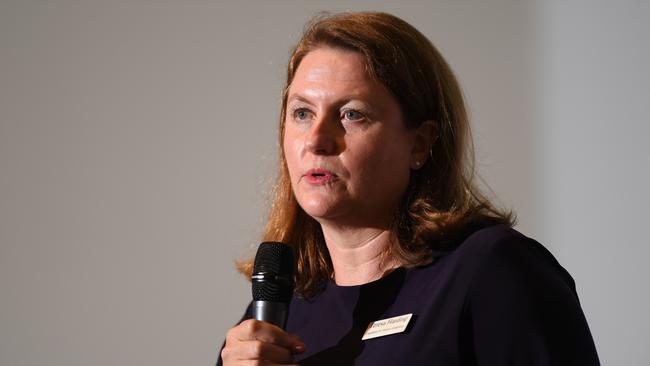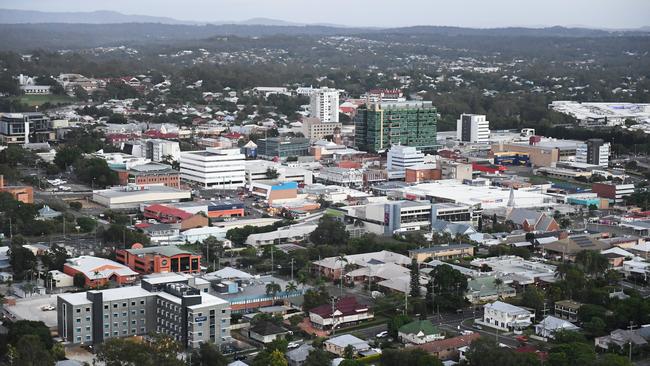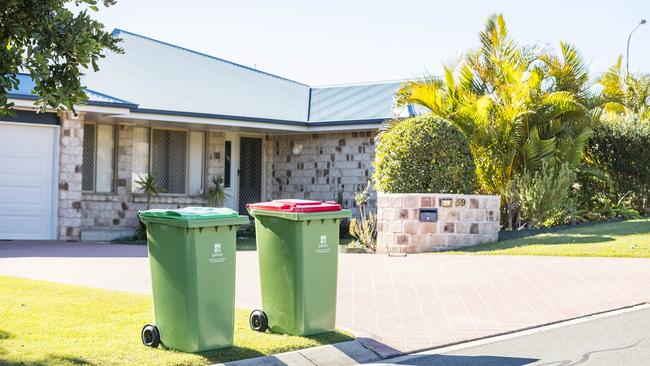How Queensland’s fastest-growing city Ipswich is keeping up with huge population growth
Ipswich City Council - which will have double the number of residents in 20 years - is handing out about 150 new bins to households a week. The flood of new arrivals is putting a serious strain on the organisation’s resources.

Ipswich
Don't miss out on the headlines from Ipswich. Followed categories will be added to My News.
Ipswich City Council is doling out about 150 new bins a week to new residents, with the flood of thousands of fresh arrivals a year putting a serious strain on the organisation’s resources.
The city’s population is expanding faster than any other in Queensland and it is set to more than double to hit 550,000 by 2041.
About 70 per cent of that growth will happen in the corridor between Ipswich Central and Springfield.

The Ripley Valley will ultimately be home to 120,000 people and 50,000 homes by 2045 and there will be more than 100,000 living in Greater Springfield by 2030.
A bit over 6000 people, about the size of country town Beaudesert, moved into Ipswich alone in the past financial year.
In that time another 2,547 new houses and apartments went up and more than 3,600 new lots were approved.
The numbers coming into Queensland’s oldest provincial city are mind-boggling and the unprecedented growth is bringing with it big challenges for city leaders.
LNP Mayor Teresa Harding said dealing with increasing levels of waste was just one of the many key issues.
The $532.3 million council is giving out about 150 new household waste bins a week, adding up to 100 steps for truck drivers every week on average.
Efforts to procure parts from China to get more trucks on the road to keep up with the demand has been delayed due to Covid.
“We’re very much governed by (the State Government’s) South East Queensland regional plan which came out in 2017 where Ipswich is to take in 30 per cent of growth in southeast Queensland,” she said.
“For us it’s very much making sure the council is keeping up, but also about the infrastructure the state and feds need to build to make sure we can take in that growth.
“We’re very much roads, rubbish and rates. We need to make sure we have more local roads, more bins collected and there are amenities and parks. But Ipswich is suffering from a lack of infrastructure investment from the state and the feds.”

Cr Harding said state and federal budgets this year had delivered very little for her city when it came to major transport infrastructure projects with Scott Morrison’s Government only including $4 million for a business case for the long-awaited Mount Crosby Road-Warrego Highway interchange upgrade.
She said the city had received funding from the state for education and health but no new funding for transport infrastructure.
The Ipswich Leaders Alliance was formed in the lead up to last year’s state election to pressure political parties for funding commitments but the coalition of business and industry leaders chaired by the mayor didn’t find much success.
As a safe Labor stronghold, there is little incentive for either major to make major commitments when it comes time for local residents to cast their vote.
Money to progress priority projects including the Ipswich to Springfield Central Public Transport Corridor, second river crossing, upgrades for the Cunningham and Warrego highways and vital Ripley roads has yet to be secured.
Cr Harding said the council would be “going in hard” ahead of the upcoming federal election to push for infrastructure funding in a region set to grow its population by 4.6 per cent year on year until 2036.
She said boom suburbs such as Spring Mountain, Ripley, Redbank Plains, Collingwood Park and Deebing Heights were lacking much-needed attention.
More than one new home a day is being built in Spring Mountain and Ripley with 2484 people moving into the two suburbs in the last financial year.
In September more than 1100 property searches were requested across the city, doubling the figures seen pre-Covid.
“I feel we haven’t been getting our fair share,” Cr Harding said.
“Council only receives three per cent of taxes. We are advocating to our state and federal counterparts. We have to make sure the Federal Government does allocate money for those large projects and the highway upgrades as well.
“The state and feds know this growth is happening. It’s getting stronger and stronger. They need to pull their finger out and make sure we do get the infrastructure we need out here.
“This needs to happen now.”
Cr Harding said an affordable housing market, unique lifestyle and jobs were drawing the tide of new residents into Ipswich.
The city’s unemployment rate still sits at 7.5 per cent with manufacturing (14.6 per cent) and health (13.8 per cent) sectors the region’s biggest employers.
The biggest job growth will be seen in local health, education and manufacturing sectors over the next 20 years.
Over the past year the council has built 30 kilometres of new roads and 43 kilometres of new bikeways and paths.
An extra 17 hectares of local parks and 14 hectares to local reserves were added in the 2020-21 financial year.
Read more stories by Lachlan McIvor here.




